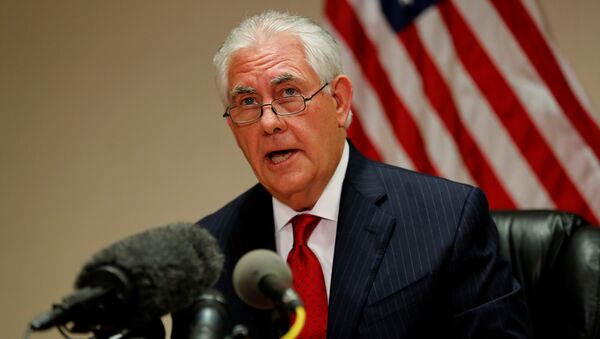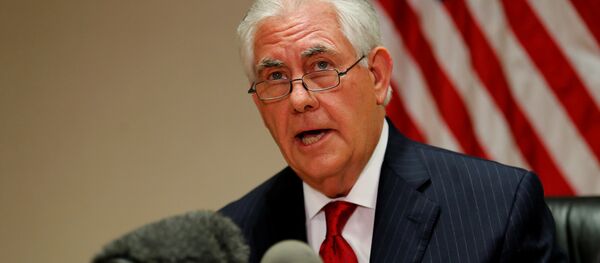"The United States and Russia certainly have unresolved differences on a number of issues, but we have the potential to appropriately coordinate in Syria in order to produce stability and serve our mutual security interests," Tillerson stated on Wednesday.
He pointed out that the United States is ready to work with Russia to explore potential areas of cooperation to establish no-fly zones and other measures that will bring stability in the ongoing Syrian conflict.
"The United States is prepared to explore the possibility of establishing with Russia joint mechanisms for ensuring stability, including no-fly zones, on the ground ceasefire observers, and coordinated delivery of humanitarian assistance," Tillerson said.
At the same time, the Secretary of State urged forces of the Syrian government and the US-led Coalition against the Daesh terror group (banned in Russia) to accept agreed de-escalation boundaries to avoid conflict, the State Department said in a statement.
"We call upon all parties, including the Syrian government and its allies, Syrian opposition forces, and Coalition forces carrying out the battle to defeat [Daesh], to avoid conflict with one another and adhere to agreed geographical boundaries for military de-confliction and protocols for de-escalation," the statement said on Wednesday.
Earlier in the day, the State Department said leaders of the 72-member Global Coalition to Defeat IS will hold in-depth talks on Wednesday on how to accelerate the effort to defeat the Islamic State in the few areas it still holds in Iraq and Syria, as well as maximize global pressure on its branches, affiliates and networks.



